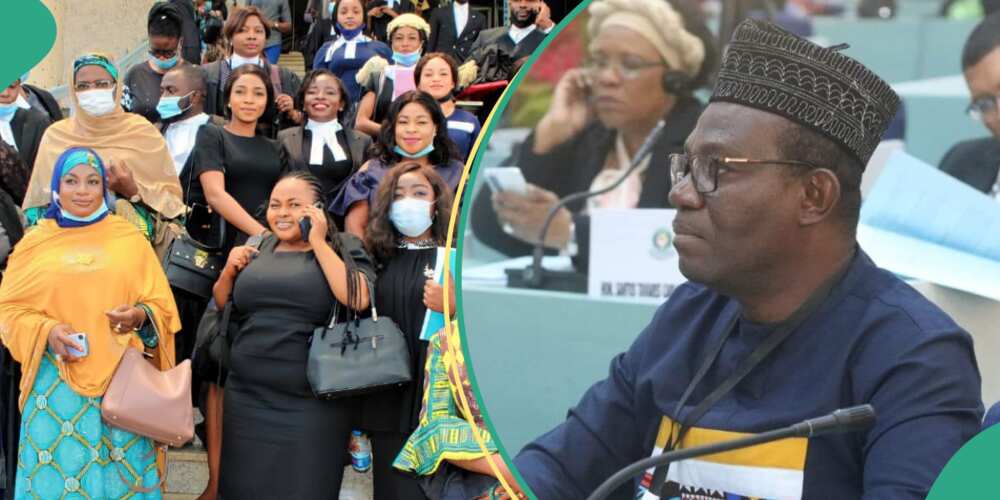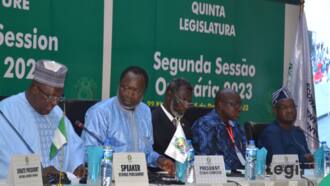ECOWAS: Why 35% Affirmative Action for Women Is Stalling, Lawmaker Reveals
- Patriarchy and religion have been blamed for the non-implementation of affirmative action for women in Nigeria, Ghana and other West African nations
- Ghanaian lawmaker Hon. Emmanuel Kwasi Bedzrah stated this on Thursday, November 23
- He told Legit.ng that the African setting makes it difficult for women to have their rightful place in governance
Legit.ng journalist Segun Adeyemi has over 9 years of experience covering political events, civil society, courts, and metro
FCT, Abuja - The refusal of countries in the West African region to implement the 35 per cent affirmative has continued to worry women.
In Nigeria, women have raised concerns 18 months after a significant court ruling mandating the Nigerian Government to enforce a 35 per cent affirmative action.

Source: Facebook
Women in the country are apprehensive as they observe governments at different levels seemingly reluctant to adhere to the court's directive.
PAY ATTENTION: Сheck out news that is picked exactly for YOU ➡️ find the “Recommended for you” block on the home page and enjoy!
It is believed that countries like Cape Verde, the Republic of Benin and Sierra Leone have already implemented this policy.
However, leading nations in the ECOWAS region, like Nigeria and Ghana, have yet to prioritise implementing this policy.
Affirmative action: Ghanaian lawmaker blames patriarchy, and religion for non-implementation
Speaking to Legit.ng on this development, Hon. Emmanuel Kwasi Bedzrah, a Ghanaian lawmaker and parliamentarian of the ECOWAS parliament, revealed that religion and the patriarchial nature of Africa have been a major hindrance to the policy.
He said:
"Some religions will want the women to be in the background. And some religions will wish for women to be at the forefront.
"For instance, if the religion allows a man to marry less than four women, and that religion gives them equal opportunity, and it comes to make you one of them, the minister. Then, the man will begin to think which of the four women will ask them to become a minister.

Read also
Another African country unveils visa-on-arrival for Nigerians, other Africans, sets deadline
"Now, when it comes to educating the women, and he has four wives, he will prefer to send the male child to school than the female because of the economy.
"Maybe he doesn't have money to take all of them. So, he will prefer the women. So, it is a historical thing with us in the sub-region in Africa."
Illegal mining: ECOWAS parliament debates on regional regulatory laws
In another report, parliamentarians at the ECOWAS parliament have begun a move to combat illegal mining in the sub-region of West Africa.
A joint committee on agriculture and mineral resources at the parliament rolled out a series of regulatory laws for consideration to combat this environmental ill.
These regulatory laws seek to protect wildlife, plastic waste management, and afforestation.
PAY ATTENTION: Unlock the best of Legit.ng on Pinterest! Subscribe now and get your daily inspiration!
Source: Legit.ng

